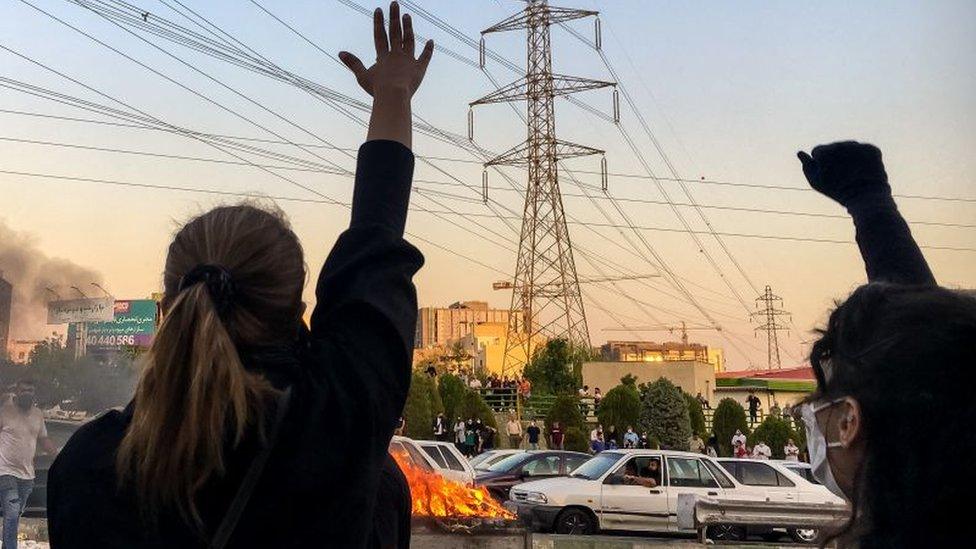Iranian woman paralysed after being shot over hijab
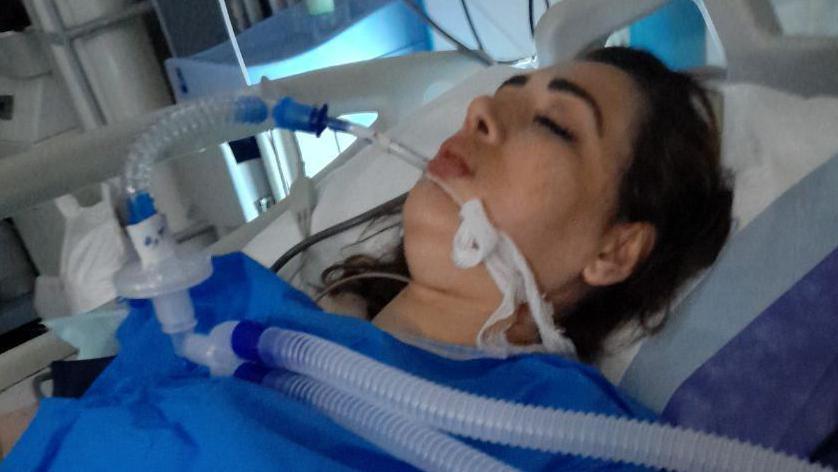
A source said a bullet fired by police had "severely damaged" Arezoo Badri's spinal cord
- Published
A mother of two has been left paraplegic after being shot by Iranian police over an alleged violation of the country's strict hijab rules, a source with knowledge of the case has told the BBC.
"She is paralysed from the waist down, and doctors have said it will take months to determine whether she will be permanently paraplegic or not."
Arezoo Badri, 31, was driving home with her sister in the northern city of Noor on 22 July when police attempted to pull her over to confiscate her car.
The driver did not comply with the order to stop, prompting the officers to shoot, the police commander in Noor told Iran's state-run news agency, without naming Ms Badri.
The incident comes after Iranian police announced a clampdown on women defying the nation's compulsory dress code.
The fresh measures included using CCTV to identify female drivers failing to cover their heads and the confiscation of vehicles found to be carrying female passengers with uncovered hair.
It followed prolonged public outcry over the law in the wake of the death of Mahsa Amini in 2022 while being detained by Iran's morality police for allegedly wearing her hijab, or headscarf, "improperly".
It is unclear whether Ms Badri was wearing a headscarf when she was stopped by police, but her car had a confiscation notice against it - suggesting multiple alleged violations of the hijab law.
The BBC source said the police officer first shot at the car's tyre before targeting her directly from the driver's side.
"The bullet entered her lung and severely damaged her spinal cord."
Colonel Ahmed Amini, Noor's police chief, said the use of firearms was permitted under Iranian law.
After being initially taken to a hospital in Noor, Ms Badri was transferred to a hospital in Sari, the provincial capital, for lung surgery. A week later she was taken to the Iranian capital, Tehran.
The bullet was only removed after 10 days, the source said.
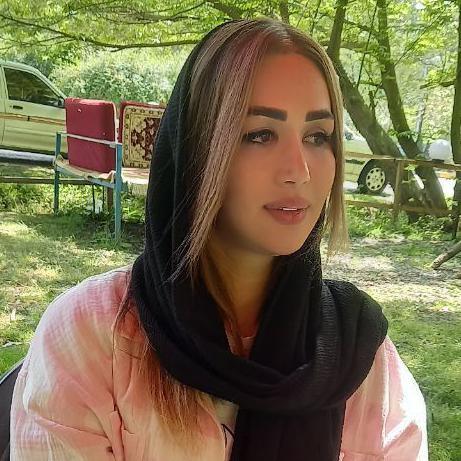
Police said Ms Badri failed to stop her car, which had a confiscation notice
Both the police and the BBC source said that Ms Badri's car windows were tinted.
Ms Badri is now in the intensive care unit of the police-owned Vali-e-Asr Hospital in Tehran and under tight security.
According to the source, her family is allowed only brief visits, during which their mobile phones are confiscated. Authorities have prohibited visitors from taking photos or video of Ms Badri - though some have emerged.
The heavy security measures surrounding Ms Badri's hospitalisation are reminiscent of those of Armita Geravand, a 17-year-old who died in October after spending 28 days in a coma at Fajr Hospital in Tehran, following an alleged altercation with the morality police at an underground station.
Human rights activists said that she was assaulted for not wearing a hijab, an allegation that the Iranian government denies.
Women have been legally required to wear a hijab in Iran since the Islamic revolution of 1979. Penalties for infringements of the law include fines and imprisonment.
Incidents involving the morality police - who are tasked with enforcing the law - continue to be reported while the Women, Life, Freedom movement Ms Amini's death sparked remains ongoing.
Iranian women have previously told the BBC they were still willing to defy the rule despite the increased risk of punishment.
Recently, CCTV footage showing the violent assault of a 14-year-old girl by hijab enforcement officers in Tehran ignited widespread outrage.
Nafas Hajisharif's mother told Iran’s Ensaf News that she found her daughter at a morality police station with a "bruised face, swollen lips, a bruised neck, and torn clothes".
Related topics
- Published12 June 2023
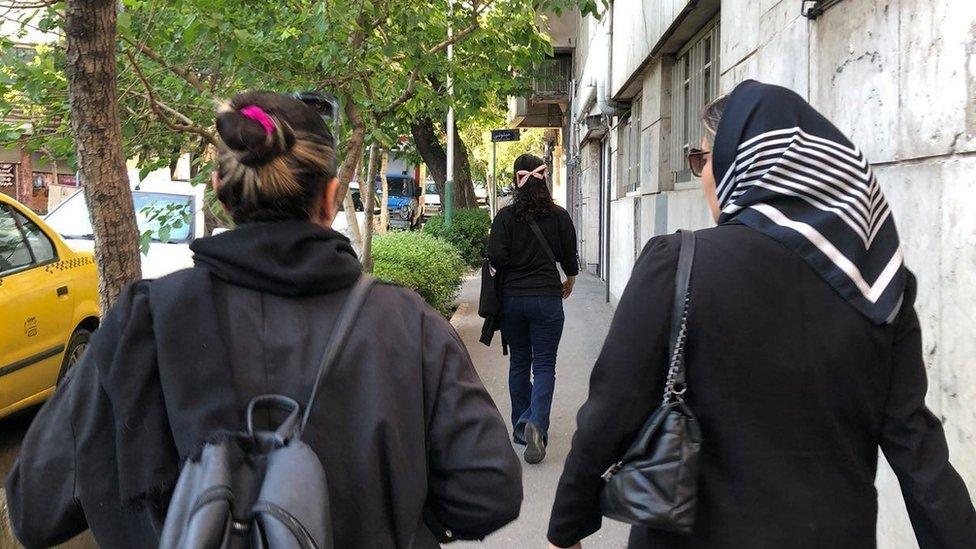
- Published20 September 2023
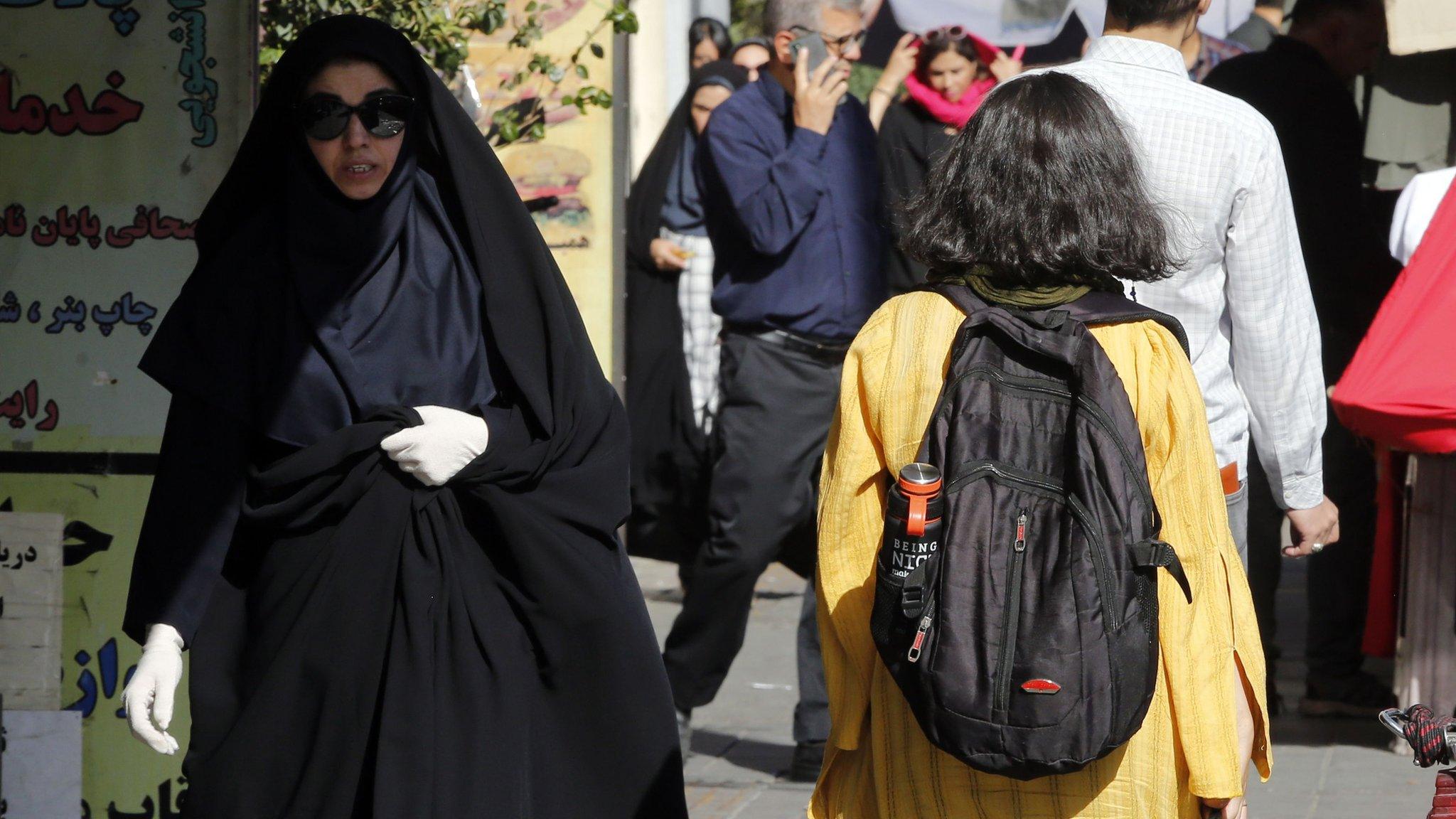
- Published28 February 2024
